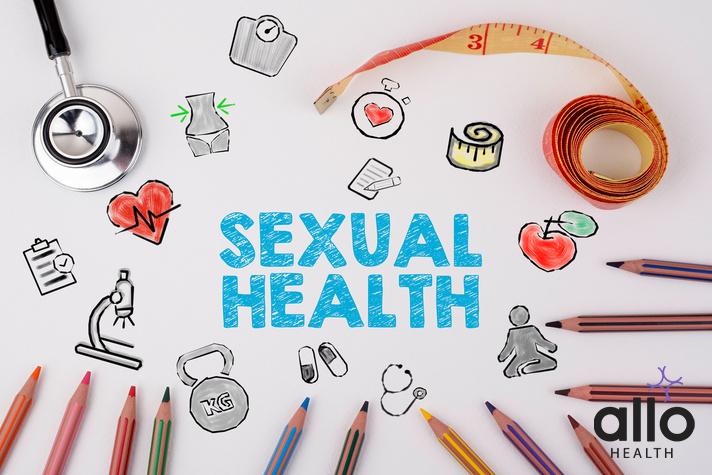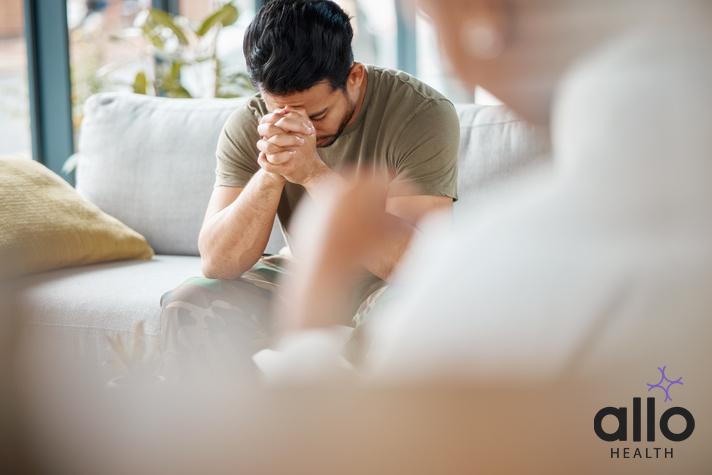Psychological And Emotional Aspects Of Aging And Sexual Health

Allo Health is dedicated to personalized well-being, offering support and trusted information tailored to individual health goals. The platform emphasizes human-generated content, led by a distinguished medical team of experts, including physicians and sexual health specialists. Their commitment to credibility involves rigorous fact-checking, authoritative research, and continuous updates to ensure accurate, up-to-date information. Allo Health's unique approach goes beyond conventional platforms, providing expert-led insights and a continuous commitment to excellence, with user feedback playing a crucial role in shaping the platform's authoritative voice.

Dr Sanina Mansoor holds MBBS degree from Yenepoya university,Mangalore.She has 8 years of experience working as a medical officer at various health centres and medical colleges.
Why This Was Upated?
Our experts continually monitor the health and wellness space, and we update our articles when new information became available.
Updated on 20 June, 2025
- Article was updated as part of our commitment to diversity, equity, and inclusion.

Aging is a natural process that brings about numerous changes in the human body, including shifts in sexual health and behavior. While physical changes such as hormonal fluctuations, reduced libido, and medical conditions are often discussed, the psychological and emotional aspects of aging and sexual health are equally important. Understanding these aspects can lead to a more comprehensive and compassionate approach to sexual well-being in older adults.
The Intersection of Aging and Sexual Health

As people age, their sexual health evolves. This evolution is influenced not only by physical factors but also by psychological and emotional changes. The societal taboo surrounding older adults and sexuality often exacerbates the challenges faced in this area, leading to misconceptions and neglect of sexual health in later years.
Psychological Aspects of Aging and Sexual Health
-
Self-Perception and Body Image
Aging can significantly impact self-perception and body image. Many older adults struggle with accepting the physical changes that come with age, such as weight gain, wrinkles, and hair loss. These changes can lead to decreased self-esteem and feelings of unattractiveness, which in turn affect sexual desire and confidence.
Maintaining a positive body image and self-perception is crucial for a healthy sex life. Encouraging older adults to embrace their bodies and recognize their worth beyond physical appearance can foster a healthier relationship with their sexuality.
-
Cognitive Changes
Cognitive decline, including memory loss and reduced cognitive function, can affect sexual health. Conditions such as dementia can alter sexual behavior, sometimes leading to inappropriate actions or diminished interest in sex. Caregivers and partners need to navigate these changes with sensitivity and understanding, ensuring that the dignity and autonomy of the older adult are respected.
-
Mental Health
Mental health issues, such as depression and anxiety, are prevalent among older adults and can severely impact sexual health. The loss of a partner, retirement, and the onset of chronic illnesses can contribute to these conditions, leading to decreased libido and sexual satisfaction. Addressing mental health through counseling, support groups, and medical intervention can improve overall well-being and enhance sexual health.
Emotional Aspects of Aging and Sexual Health
-
Intimacy and Connection
Emotional intimacy remains a vital component of sexual health as people age. The need for connection, touch, and emotional bonding does not diminish with age; it often becomes more significant. Older adults may prioritize emotional closeness over sexual activity, seeking comfort and companionship through physical affection and emotional sharing.
Encouraging open communication about needs and desires can help older adults maintain intimacy and a fulfilling emotional connection with their partners.
-
Grief and Loss
The loss of a spouse or long-term partner can profoundly affect sexual health and emotional well-being. Grief can lead to a period of sexual inactivity, during which the surviving partner may struggle with feelings of loneliness and diminished self-worth. Support systems, such as family, friends, and counseling, play a critical role in helping older adults navigate this challenging time.
Re-entering the dating scene can be daunting for older adults who have lost a partner. Providing guidance and reassurance about finding new relationships can help them rebuild their emotional and sexual lives.
-
Societal Attitudes and Stigma
Societal attitudes towards aging and sexuality often contribute to the emotional challenges faced by older adults. The misconception that sexual activity and desire diminish entirely with age can lead to feelings of shame and embarrassment. Older adults may fear judgment or ridicule for expressing their sexual needs, leading to suppression of their desires and decreased sexual satisfaction.
Promoting a more inclusive and accepting view of sexuality in older age can help combat these stigmas. Education and awareness campaigns can challenge stereotypes and encourage a more open dialogue about sexual health in later years.
Strategies for Enhancing Sexual Health in Older Adults
-
Education and Communication
Education about the normal changes in sexual health that accompany aging is essential. Providing accurate information about what to expect can alleviate anxiety and encourage older adults to seek help when needed. Encouraging open communication between partners about their sexual needs and concerns can also foster a more fulfilling sexual relationship.
-
Medical Support
Regular medical check-ups and discussions about sexual health with healthcare providers can address physical issues that impact sexual function. Conditions such as erectile dysfunction, vaginal dryness, and hormonal imbalances can often be managed with medical intervention, improving sexual health and satisfaction.
-
Mental Health Care

Addressing mental health issues through therapy, medication, and support groups can significantly improve sexual health. Mental well-being is closely linked to sexual desire and satisfaction, making it crucial to treat underlying psychological conditions.
-
Creating a Supportive Environment
Fostering a supportive environment where older adults feel comfortable discussing their sexual health is vital. This includes creating safe spaces for conversation, promoting positive representations of older sexuality in media, and advocating for policies that support sexual health in older age.
The psychological and emotional aspects of aging and sexual health are complex and multifaceted. By acknowledging and addressing these factors, we can support older adults in maintaining a healthy, fulfilling sex life. Promoting positive self-perception, addressing mental health, fostering intimacy, and challenging societal stigmas are all crucial steps in enhancing the sexual well-being of older adults. A comprehensive approach that combines education, medical support, and emotional care can ensure that sexual health remains an integral part of overall well-being throughout the aging process.
"The following blog article provides general information and insights on various topics. However, it is important to note that the information presented is not intended as professional advice in any specific field or area. The content of this blog is for general educational and informational purposes only.
Book consultation
The content should not be interpreted as endorsement, recommendation, or guarantee of any product, service, or information mentioned. Readers are solely responsible for the decisions and actions they take based on the information provided in this blog. It is essential to exercise individual judgment, critical thinking, and personal responsibility when applying or implementing any information or suggestions discussed in the blog."






